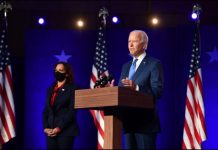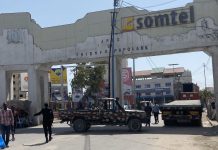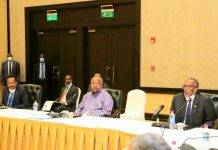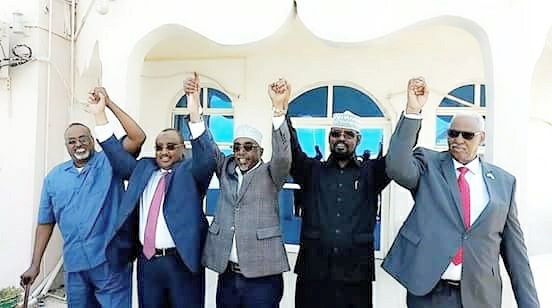In early September, the Somali regional leaders met in Kismayo. It was a meeting where the President Mohamed Farmajo was not present, but yet his big portrait was so visible that it covered the pictures of the five regional leaders. The Somali Federal Government (SFG) was the main topic of the conference.
Any honest, smart politician will first assess and examine a political move. Will it succeed or will it fail? Based on this assessment, the politician takes the most prudent action which will make sure the political move is successful. At the Kismayo Conference, that was not the case.
The major issue is not why the conference took place in Kismayo, but the outcomes of the gathering. The conference revealed a chasm between the regional leaders and their own constituents, their poor standing in public opinion, the extent of their limited power, and their unwillingness to work with the federal government.
A viable government
Members of the international community have been working diligently to make sure Somalia has a viable federal government. For the past several years, the international donors, mostly European, have spent millions of dollars to assist both the federal government and the regional states in capacity building, leadership training, security matters, and a multitude of social and educational projects. Numerous international conferences were held in London and Brussels to appeal to Western donors and other nations to help Somalia.
What did the Kismayo Conference do? It issued a communique by the regional leaders cutting ties with the federal government. This unwise action is an indication that these regional leaders haven’t learned much from the trainings and support system they have been getting from the international community in working hand in hand with the federal government to solve problems. Unfortunately, these regional leaders consider themselves independent states that can sever ties to Mogadishu as they please. Furthermore, the regional leaders’ action is an example of how they do not want to be part of the solution in the country. Their divisive move gives the appearance that the SFG is the “adult” in this relationship.
Lack of public support
One of the ironies of the Kismayo Conference is the widening chasm between these leaders and their constituents. This disconnect became apparent in the way the constituents reacted to the conference. Instead of winning support for their hostile conference, the leaders found that public opinion was overwhelmingly in support of the federal government.
To say that these regional leaders are a bunch of amateurs is an understatement. Their actions proved that their opposition and intransigence were motivated by personal animus against federal government leaders. How else can one explain their rash and ill-advised actions?
Calls for financial auditing
One of the regional leaders boldly asked the federal ministry of finance to publish on social media an audit of the funds it gives to the regional states. What sounds like a noble idea is actually fraught with risks for the regional leaders themselves. Are these leaders willing to do a similar audit for how the federal funds are spent in their regions? Of course not.
These empty calls for financial auditing masks the truth that there is an endemic corruption in the regional states. After millions of dollars of aid given to these regional states, how does one justify that they are still unable to fully control their regions? Almost all these regions are still in the hands of Al-Shabaab. In essence, these leaders only control their capitals, and many have to fly to reach other cities and towns.
Non-cooperation
President Farmajo invited the regional leaders to attend a national security conference in Mogadishu on September 17, but all of them declined the invitation. If security is the most important issue facing Somalia, wouldn’t you think these regional leaders would cooperate with the federal government at least on this matter? Not so.
The regional leaders do all the talking about the centrality of securing peace in the country and fighting the dangerous forces causing instability. It is simply empty rhetoric. The refusal to attend the security conference, once again shows the world that the regional leaders are part of the problem, not the solution.
In conclusion, the Kismayo Conference proved that the plan of the regional leaders was to cause a rift between the federal government and the people in these regions. It backfired and spectacularly failed. The federal government has its failings and issues, of course, but at least it is handling the regional leaders the right way, showing these incompetent leaders that they have a lot to learn. Their politics of divisiveness and polarization have failed in Kismayo and, hence, the conference receives a failing grade.
Sheiknor Abucar Qassim can be reached via the below means; Email: sheiknor@hotmail.com



























